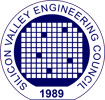
Nanobodies are antibody fragments that mimic human’s natural immune response to diseases; unlike traditional small-molecule drugs, nanobodies rarely induce toxic side effects. Moreover, because nanobodies are smaller than antibodies, nanobodies can cross the blood-brain barrier and have shown promise in treating diseases such as Alzheimer’s, Parkinson’s, and Huntington’s. However, the identification of optimal nanobodies requires expensive and time-intensive lab-based procedures. To address this issue, the algorithms developed in this study computationally predict nanobodies’ effectiveness in neutralizing antigen targets and propose a pipeline to create novel, effective nanobodies against antigen targets de novo. Since nanobody interaction data is extremely complex, a single model would likely make inaccurate predictions of nanobody effectiveness. Classically, to solve this, researchers combine multiple varied models into ensembles. The ensemble in this study is composed of 9 models (1 ANN, 5 CNNs, and 3 LSTM-RNNs), which each make numerical predictions of binding effectiveness for nanobodies. These predictions are then “stacked” or used as features for a higher-level interpreter model. This predictive model, termed EnsembleStack, predicts the effectiveness of nanobodies with a Pearson correlation coefficient of 0.88 and an of 0.78. A generative algorithm developed by previous researchers creates novel nanobody sequences, which are filtered for their effectiveness via EnsembleStack. The highly effective nanobodies are then used to re-parameterize the generative algorithm. Therefore, over multiple generations of re-parameterization, the generative algorithm becomes conditioned to produce more effective nanobodies. These nanobodies are not only 6.5 times more novel but, when evaluated in vitro, bound to the target of interest with striking effectiveness. Computational approaches like the pipeline developed in this study can replace the significant cost and time investment derived from in vitro nanobody optimization.
Keywords: nanobody, neural network, ensemble, stacking
Speaker Bio:
Anirudh Venkatraman is a senior at Homestead High School who enjoys music, science, and cooking. This past year, he won 4th place at the International Science and Engineering Fair for his project De Novo Nanobody Design Using Neural Networks, AlphaFold, and Docking
Algorithms, in addition to numerous other awards at the state and local levels. Anirudh has a passion for the field of bioinformatics and in particular, drug discovery, which he hopes to pursue in college. Apart from science fair competitions, Anirudh performs cell-based research at the Molecular Screening Shared Resource at UCLA under the guidance of Professor Robert Damoiseaux. In his free time, Anirudh loves to play the drums and cook elaborate dishes with his sister and cousin.


